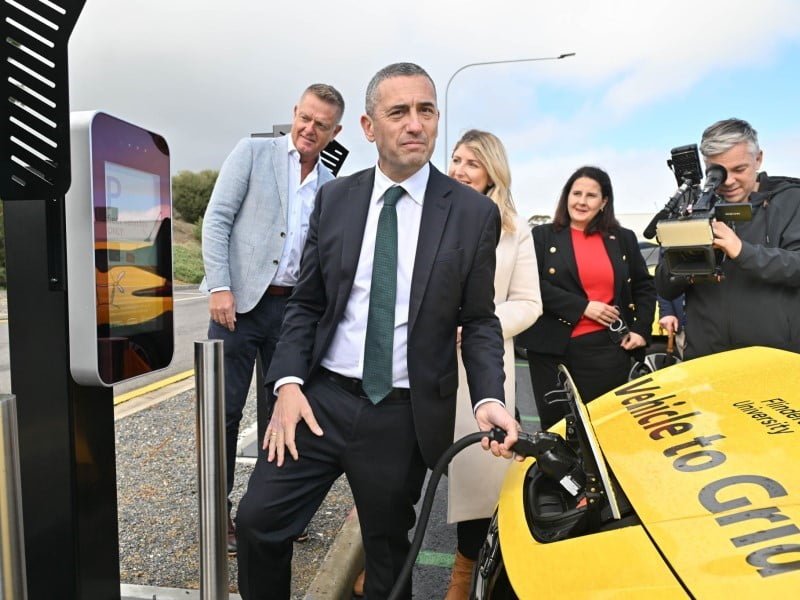The world’s first hydrogen act has passed through both houses of the South Australian parliament as the government found crossbench support to push the bill past a Greens and Liberals attempt to send it to an inquiry.
The act seeks to streamline the regulatory process for hydrogen and renewable energy projects across the whole project life cycle. It is designed to be technology agnostic about the production of hydrogen.
This means hydrogen production processes that use fossil fuels as a feedstock will be regulated under the act, potentially gaining much faster approvals. Projects relating to the extraction of naturally occurring hydrogen deposits are not covered.
The bill was passed unanimously through the Legislative Council on Wednesday despite strong criticisms from the Greens and Opposition.

Legislative Council members from SA Best and One Nation voted alongside the government in rejecting the motion to refer the bill to a select committee of the Legislative Council for inquiry and report.
Greens spokesperson on Energy Robert Simms moved the motion to refer the bill to a select committee. He warned the Legislative Council that “there is a dangerous precedent being established in this parliament; that is, when the government has big picture projects, they seek to rush them through with limited scrutiny”.
The Opposition also criticised not further scrutinising a bill that “has the ability to have huge impacts on a number of landholders and licensees”.
The Greens moved an unsuccessful motion to amend the bill to prevent blue hydrogen made from methane gas from being included, to try and “wean South Australia off gas”. The Opposition did not back this.
Minister for Primary Industries and Regional Development Clare Scriven said the legislation is technology agnostic with respect to the production of hydrogen, arguing “all types of hydrogen generation will contribute to building the necessary infrastructure required in the transition to a future clean hydrogen industry”.
“Allowing all hydrogen types encourages the industry to develop and test economically feasible technologies, which will ultimately bring down the cost of hydrogen production,”
The Greens ultimately did not oppose the passage of the final bill, recognising “that there are some benefits in the legislation”.
Leader of the Opposition in the Legislative Council Nicola Centofanti said the legislation could have “significant impact on landholder and landowner rights”.
However, she later noted that many stakeholders have told the Liberals that they have been “given assurances by this government that many of their concerns will be addressed in the regulations” and ultimately voted for the bill.
Minister for Energy and Mining Tom Koutsantonis heralded the bill’s passage as a “significant milestone” and thanked the members of the Legislative Council from SA Best and One Nation for voting down the attempt to refer the bill to a select committee.
“It’s disappointing to see the Greens joining forces with the state Liberal Party to try and frustrate the passage of this important and landmark legislation,” Mr Koutsantonis said.
“This unique regulatory framework will provide significant opportunities for South Australia to attract and retain high quality investment, confirming us as a global leader in the clean energy transition.
“I can confidently assure those that sought to stand in the way of this result that this Bill will prove to be a blueprint for other jurisdictions looking to harness the economic opportunity of clean, green energy.”
Consultation on the Hydrogen and Renewable Energy Act bill ran over a month in mid-2023 before the bill was introduced to parliament in September. An issues paper was first released for consultation between December 2022 and February 2023.
The state government is advancing its $593 million hydrogen jobs plans, with a German-Canadian consortium to deliver a green hydrogen production facility and hydrogen power plant by early 2026.
A hydrogen hub at Port Bonython, which is expected to be the state’s first large-scale hydrogen export terminal, is also being advanced following the execution of a $70 million grant from the federal government in September.

.png?w=600)





